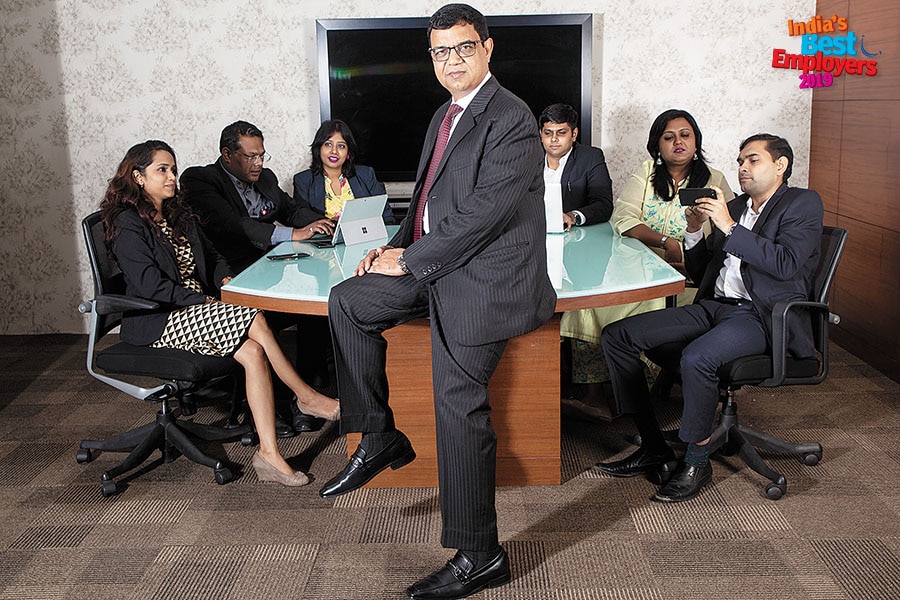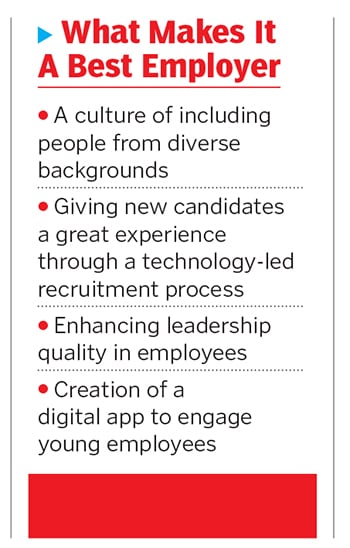Startek: Young and inclusive
Startek believes in providing equal and engaging opportunities to its millennial workforce


 SM Gupta, global chief people officer of Startek, says the company empowers its employees to achieve dynamic results
SM Gupta, global chief people officer of Startek, says the company empowers its employees to achieve dynamic results
Image: Aditi TailangAccording to the 2011 Census, 2.1 percent of India’s population falls under Persons with Disabilities or PwDs. The rate of literacy among them is low at 14.62 percent, while employment is at 36 percent, and that too mostly in the unorganised sector. In this context, Startek, a customer experience solution provider, is providing PwDs equal opportunities for training and employment, and helping eradicate the stigmas associated with disabilities.
Startek entered India in July 2018 following its merger with Mumbai-headquartered Aegis, a customer experience solution provider that was established in 1992 and had a presence in nine countries. The merger was aimed at reaching new and growing markets, implementing multi-lingual operations and new technology, and operating diverse teams for global customers.
Lance Rosenzweig, global CEO, Startek, says, “As we integrated our businesses, we worked hard to build a strong unified culture, while maintaining and celebrating our diversity around the world. We’re excited about the future and look forward to continuing our journey to deliver a new generation of customer experience solutions, digital transformation, and new opportunities for our employees.”
Being a firm believer in equality, Startek implements a ‘Diversity and Inclusion’ initiative that ensures 1.9 percent of its 462 employees in India, across 21 offices, are PwDs they are employed across all roles and functions in the organisation, and at all levels of management. Globally, 1.2 percent of its employees are PwDs. While it currently employs people with any of seven kinds of disabilities—including physical and hearing disabilities, and epilepsy—it is moving towards including 14 more forms of disabilities, as recognised by the government.
“It is not the policy of diversity and inclusion that is new, but its implementation. It is not that they are doing it for the first time, but implementation is at the heart of it. That is what makes it a good organisation, says Anjali Raghuvanshi, chief people officer of Randstad India, a job consultancy.
Globally, Startek has more than 45,000 employees from 86 nationalities, speaking 55 languages, and it has hired more than 5,000 employees with disabilities in the past seven years. With regard to gender equality, its gender ratio in India has improved from 80:20 to 62:38 in the past six years as against the global figure of 53:47.
As a BPO, Startek sees a large number of prospective employees at each of its offices every day. To ease the management of candidates, the company has implemented the Business Transformation Tool that automates processes such as résumé screening and tracking a candidate through multiple selection stages, thus reducing the total selection process to just two hours. The tool also tracks employees who have completed internal trainings, appraisal procedures and disciplinary actions.
Raghuvanshi says, “Automation leads to a great candidate experience, which is critical. From a CHRO’s point of view, talent acquisition is the entry point for any employee, and the experience you give an employee is critical. Today, employees decide whether or not to join a company based of their first experience.”
SM Gupta, global chief people officer of Startek, says, “Being in a business that is people-intensive, we have designed and implemented systems and programmes to cover the entire employment lifecycle. We empower our employees to achieve dynamic results and this comes with a commitment towards their social, economic and intellectual growth.” The company works on a 14-pillars model that includes equal opportunity, diversity and performance management, with an aim to achieve high employee engagement.
A large portion of Startek’s employees are millennials, which brings a unique set of challenges. This fast-moving category of employees is more ambitious, with higher demands. Their need for instant rewards, community impact, social media engagement, transparent career paths and sense of purpose has led the company to consider building an app that enables learning through tailored, short videos. Still at the discussion phase, the app will focus on employee engagement and recognition with in-house content.
“Engaging every single mind in the organisation with meaningful work, providing clarity around organisational purpose, aligning employees around the organisational vision, making each one part of the action and allowing everyone to have a voice is what we are looking to achieve,” says Gupta.
(While Aegis was originally on the list of India’s Best Employer 2019, it is now considered as Startek following their merger)
First Published: Aug 03, 2019, 08:01
Subscribe Now